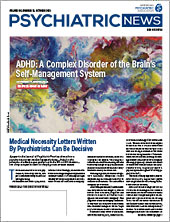Patients who have diabetes and depression and take antidepressants for at least six months may have a lower risk of heart attack than those who do not take antidepressants, a study in the Journal of Affective Disorders has found.
Alice Chun-Chen Chen, a statistician in the Department of Statistics at National Chengchi University in Taipei, Taiwan, and colleagues analyzed data obtained from the National Health Insurance Research Database (NHIRD) in Taiwan. The researchers focused on 287,350 patients who were at least 50 years old and had at least one inpatient or three outpatient diagnoses of diabetes between 1997 and 2010. Half of the patients took antidepressants and half did not.
The researchers then used data amassed from 2000 to 2013 to compare the risk of heart attack between both groups and found that 2.6% of those in the antidepressant group had been diagnosed with heart attack compared with 3.7% of those in the nonantidepressant group. Furthermore, those who took antidepressants had a 32% lower risk of having a heart attack.
“The results raise the issue of adequate screening for depression and appropriate use of antidepressants among patients with diabetes, especially for those with a high risk of myocardial infarction,” Chen told Psychiatric News.
Among patients who had taken antidepressants for 180 days or longer, the risk of heart attack was 26% lower in those who took tricyclic antidepressants, 34% lower in those who took selective serotonin reuptake inhibitors (SSRIs), 33% lower in those who took serotonin and norepinephrine reuptake inhibitors (SNRIs), 29% lower in those who took trazodone, and 48% lower in those who took mirtazapine compared with patients who did not take antidepressants. However, patients who took bupropion did not have a lower risk of heart attack than those who did not take antidepressants.
Chen offered several possible reasons why taking antidepressants may lower risk of heart attack in people with diabetes and depression.
“Antidepressants have been suggested to have anti-inflammation effects, and some of them may have anticoagulant effects similar to aspirin,” Chen said, noting that this may be particularly true of antidepressants that affect serotonin.
“Antidepressants can also increase compliance with treatment of diabetes in diabetic patients with depression,” she added. She explained that depressive symptoms in people with diabetes have been linked to poor medication adherence and poor self-management of diabetes with respect to nutrition, physical activity, foot care, and blood glucose monitoring.
The study’s findings bolster those of a previous study by several of the researchers in the October 2019 issue of the Journal of Clinical Endocrinology and Metabolism. In that study, the researchers used the NHIRD to analyze data from 53,412 patients who were diagnosed with diabetes and depression, beginning in 2000. Among those patients, 50,532 took antidepressants and 2,880 did not take antidepressants. To compare mortality rates between the two groups, the researchers then followed the patients from the date patients were diagnosed with diabetes until 2013 or until the patients died, whichever came first.
Patients who had taken the highest doses of antidepressants had a 35% lower mortality risk than those who did not take antidepressants. Among patients who had taken antidepressants, mortality risk was 37% lower in those who took SSRIs, 42% lower in those who took SNRIs, 80% lower in those who took norepinephrine-dopamine reuptake inhibitors, 40% lower in those who took mirtazapine, 27% lower in those who took tricyclic/tetracyclic antidepressants, and 48% lower in those who took trazodone compared with those who did not take antidepressants.
The study in the Journal of Affective Disorders was supported in part by grants from Cathay General Hospital and the Cathay General Hospital-National Taiwan University Hospital Joint Research Program. The study in the Journal of Clinical Endocrinology and Metabolism was supported by Changhua Christian Hospital and Chiayi Chang Gung Hospital, Taiwan. ■
“Antidepressants and the Risk of Myocardial Infarction Among Patients With Diabetes: A Population-based Cohort Study” is posted
here.
“Antidepressants Reduced Risk of Mortality in Patients with Diabetes Mellitus: A Population-based Cohort Study in Taiwan” is posted
here.

